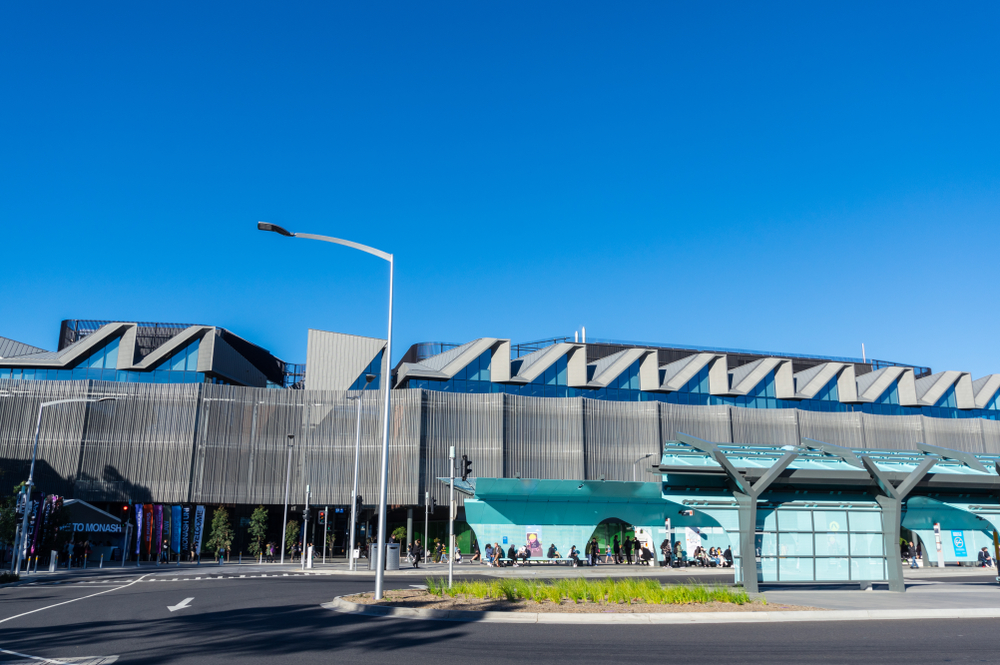The impact of Australia’s international student boom
Education is big business in Australia. We are now the fourth most popular country in the world for international students, coming in after the US, UK and France – a considerable achievement for a country of our size.
Australia’s international education sector contributed a staggering $28 billion to the economy in the 2017 financial year and continues to be our nation’s largest services export.
In fact, this largely overlooked sector is now so big, it is not only a significant driver of the national economy it is also a key underlying driver for housing demand.
International students driving growth
It’s no secret that Australia’s population is growing – and fast. A primary contributing factor for this growth is net overseas migration, which has been influenced by the rise of international students.
An ABS study recently found that the highest concentrations of Australia’s newest migrants were commonly found around university campuses and the inner suburbs in Melbourne and Sydney.
According to Prime Minister Malcolm Turnbull, international students are not just an influencing factor in immigration growth, they are the driving force.
“There are around 200,000 more foreign students in Australia today than there were a few years ago,” Prime Minister Malcolm Turnbull told the ABC.
“That is the single biggest driving factor (of immigration growth).”
International student enrolments on the rise
The influence of the rising Asian middle class
Growth in international student enrolments and education exports have been rising with no signs of slowing down.
Students from China make up the largest proportion of students at 31% followed by India, Nepal, Malaysia and Vietnam.
The rising share of Chinese students is a trend that is expected to continue alongside the growing number of middle class Asian consumers.
The rising share of Chinese international student enrolments
The OECD forecasts 3.2 billion middle-class Asian consumers by 2030, a massive upshot from only half a billion recorded in 2009.
The rise of the Asian middle class will add strong demand for international services sectors such as travel and education, with Australia set to be a major beneficiary on both accounts.
Australia’s strong reputation for education, relative value for money, high standard of living and strategic location within the Asia Pacific rim, make our universities a particularly attractive proposition for international students.
International students also bring in significant tourism dollars. Deloitte estimates that visiting friends and family of international students have added $222 million to the economy and supported the employment of almost 2,400 jobs.
Universities spending big on upgrades and expansion
You only need to look on campus to see evidence of the international student boom. Construction fences and cranes are out in force, with many Australian universities spending big on new and innovative buildings in a race to attract more students.
The University of Technology Sydney recently commissioned world-renowned architect Frank Gehry – of Guggenheim fame – to design their new ‘Dr Chau Chak Wing’ building in the Haymarket campus. The building forms part of a $1 billion-plus city campus masterplan.

UTS Business School, Dr Chau Chak Wing – designed by Frank Gehry
Up north, Gold Coast University Hospital – one of Queensland’s largest clinical teaching and research facilities – has just undergone a $1.76 billion development.
Monash University in Melbourne has been investing in a series of new design-focused learning and teaching spaces. Last year, they unveiled an innovative new Biological Sciences Building. Earlier this year, the University opened its new $225 million Learning and Teaching building on its Clayton campus. Construction is also underway for a new Biomedical Learning and Teaching building – which is set to be open to students as of 2019.
Over in South Australia, the University of Adelaide and the University of South Australia have announced they’re considering a merger in a bid to join the ranks of the world’s top 100 universities.
And in Western Australia, the government has just committed $2 million to develop an international education plan, as well as announcing a new skilled migration program for graduates – both strategies designed to encourage more international students to study in the state.
Education accelerating Government infrastructure projects
The growing international education sector is not only driving infrastructure spending on campus, it’s also putting pressure on the Federal Government to accelerate transport infrastructure across key education hubs.
In Melbourne, a notable case is the $475 million commitment in the most recent Federal Budget to link Monash University’s Caulfield and Clayton campuses via a new rail line.

A new rail link will connect Monash University’s Caulfield and Clayton campuses
The rail link will not only enhance travel options for the tens of thousands of Monash students, staff and visitors, but it will also benefit a wider portion of South East Melbourne residents and commuters.
“What all these numbers show is that the impact of Australia’s unprecedented numbers of international students is far reaching. As Australia’s population grows, bolstered by a rising cohort of international students, so too does demand for housing, particularly around key university belts.
“This has had positive flow-on effects for the property market as well as surrounding infrastructure, demand for local services and tourism, contributing to broader economic growth” said Ironfish Head of Property, William Mitchell.
Ironfish Property Investment
At Ironfish, our property and research team work to identify great properties in great locations. If you’d like to find out more about our selected properties and top locations, please register to access our list.